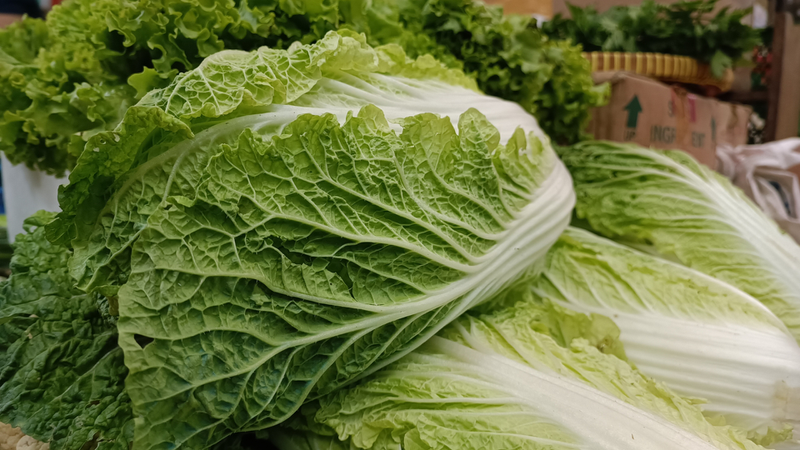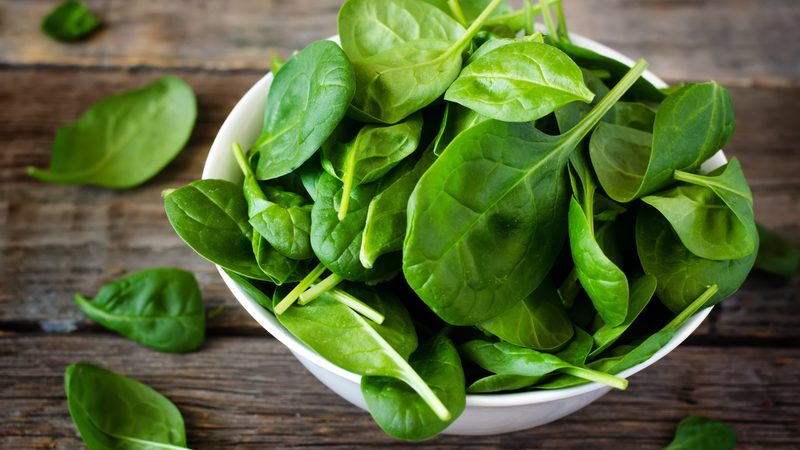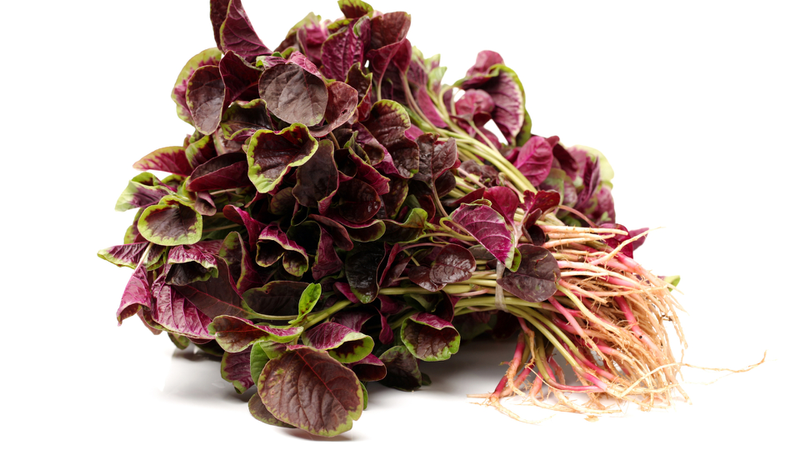Calcium is one of the essential minerals for the body, playing an important role in building and maintaining strong bones, while supporting many other important functions. When it comes to calcium sources, many people often think of shrimp, fish or dairy products. However, few people know that there are many familiar green vegetables in daily meals that contain higher calcium content than shrimp and fish. So what are those vegetables? Let’s explore 7 types of vegetables rich in calcium in the article below to supplement nutrition naturally and effectively!
Cabbage
Cabbage is a nutritious vegetable, containing many B vitamins, vitamin K, vitamin C, along with calcium, phosphorus, potassium, organic acids, fiber and other essential nutrients for health. In particular, the calcium, iron and phosphorus content in cabbage is ranked in the top 5 vegetables in terms of nutritional value. The amount of calcium in cabbage is outstanding, 5 times higher than cucumber and 7 times higher than tomato. Adding cabbage to the menu regularly will help children grow taller effectively.

Cabbage is a nutritious vegetable that is high in calcium.
Bok choy
Bok choy is a green vegetable that contains a rich amount of calcium, not inferior to foods such as shrimp or fish. In every 100g of Bok choy, there is up to 105mg of calcium, making this vegetable ranked in the list of top sources of calcium. Not only rich in calcium, Bok choy also contains many other important nutrients such as iron, potassium, folic acid and beta carotene, bringing great benefits to muscles as well as good support for the nervous system.
Bean sprouts
Bean sprouts are a nutritious food, containing many carbohydrates, proteins, vitamins and important minerals such as manganese, calcium and copper, helping to strengthen bones and effectively prevent osteoporosis. In particular, two valuable compounds in bean sprouts are phyto-oestrogen and isoflavone, which have the ability to stimulate bone cell formation, reduce bone loss and support the prevention of osteoarthritis. Not only good for bones, adding bean sprouts to your daily menu also brings many other benefits such as improving the immune system, protecting healthy eyes and reducing the risk of coronary artery disease, contributing to overall health care.
Spinach
Spinach is a name that cannot be ignored when mentioning calcium-rich vegetables. Just one cup of spinach provides twice the amount of calcium you need daily. In addition to being a rich source of calcium, spinach also contains many essential nutrients, especially the carotenoid neoxanthin, a compound that can destroy precancerous cells in the prostate, helping to protect health effectively.

Spinach is rich in calcium and many other essential nutrients.
Sweet potato leaves
Sweet potato leaves are a rich source of calcium, with just a small handful containing up to 180mg of calcium. In particular, this vegetable is also rich in vitamin K, an important nutrient that helps retain calcium in bones, thereby helping to prevent osteoporosis and reduce the risk of fractures, especially in the hip area.
Celery
Celery is a low-calorie vegetable but contains many important nutrients. In particular, the abundant vitamin A and vitamin K in celery play an important role in supporting bone health. Therefore, adding celery to your daily meals not only helps increase calcium intake but also contributes to improving overall health effectively.
Amaranth
Research shows that red amaranth contains an exceptionally high calcium content, even more than cow’s milk. In addition to calcium, red amaranth is also a rich source of vitamin K, helping the body absorb calcium more effectively. For pregnant women, adding amaranth to the diet not only helps prevent anemia but also provides enough calcium necessary for the health of both mother and fetus.

Red amaranth contains exceptionally high levels of calcium, even more than cow’s milk.
Adding calcium to your daily diet not only helps keep your body healthy but also helps protect your bones and prevent osteoporosis effectively. The 7 types of vegetables that are richer in calcium than shrimp and fish mentioned above are nutritious options that are both natural and easy to incorporate into your family’s meals. Take advantage of these vegetables to diversify your menu and ensure you get all the nutrients your body needs, thereby maintaining overall health for yourself and your family.





